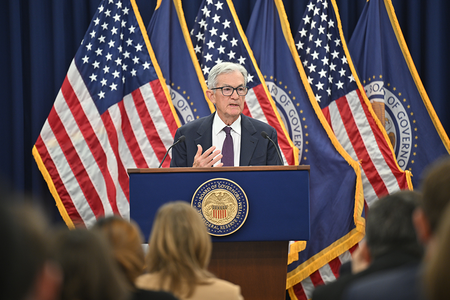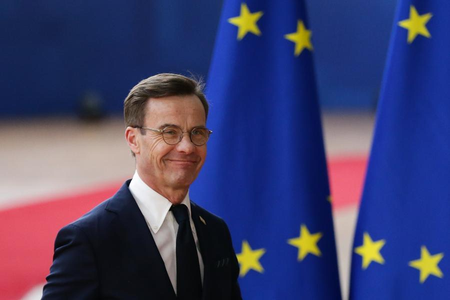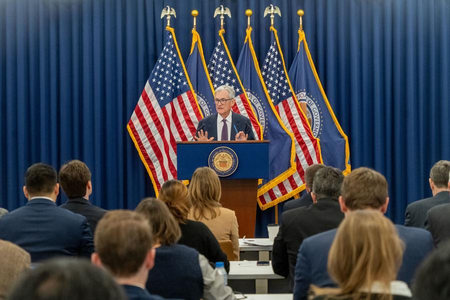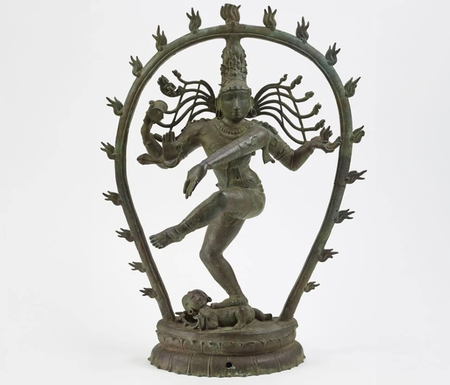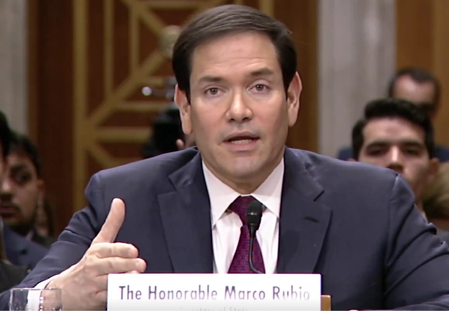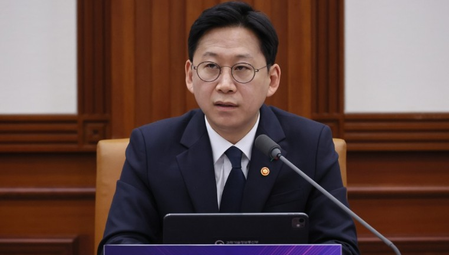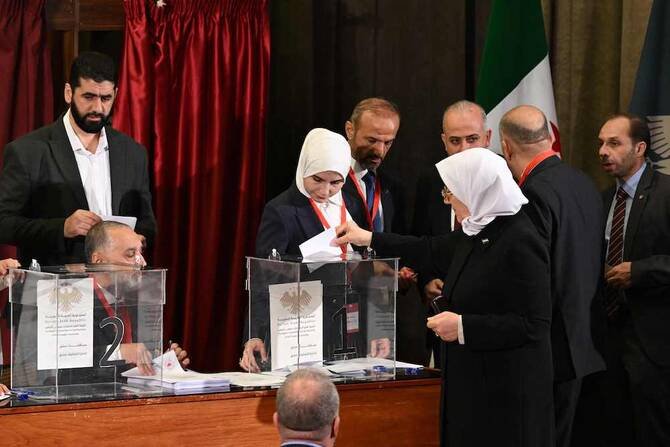
DAMASCUS(RAHNUMA): Local committees in Syria cast their ballots for members of a transitional parliament, with a third of the new lawmakers to be appointed directly by President Ahmed Al-Sharaa.
The assembly’s formation is expected to consolidate the power of Sharaa, whose forces led a coalition that toppled longtime ruler Bashar Assad in December after more than 13 years of civil war.
Members of the local committees queued up to vote at Syria’s National Library, formerly the Assad National Library, with the electoral commission saying in the evening that “the voting has ended and the counting is underway.”
A member of the Damascus elections committee told AFP that while some early results could trickle in Sunday night, the final list of winners was not due until Monday.
Around 6,000 people took part in Sunday’s selection process.
According to the commission, more than 1,500 candidates — just 14 percent of them women — are running for the assembly, which will have a renewable 30-month mandate.
Sharaa is to appoint 70 representatives to the 210-member body.
The other two-thirds are being selected by local committees appointed by the electoral commission, which itself was appointed by Sharaa.
But southern Syria’s Druze-majority Sweida province, which suffered sectarian bloodshed in July, and the country’s Kurdish-held northeast are excluded from the process for now as they are outside Damascus’s control, and their 32 seats will remain empty.
“I support the authorities and I’m ready to defend them, but these aren’t real elections,” said Louay Al-Arfi, 77, a retired civil servant sitting with friends at a Damascus cafe.
“It’s a necessity in the transitional phase, but we want direct elections” to follow, he told AFP.
The new authorities dissolved Syria’s rubber-stamp legislature after taking power.
Under a temporary constitution announced in March, the incoming parliament will exercise legislative functions until a permanent constitution is adopted and new elections are held.
Sharaa has said it would be impossible to organize direct elections now, pointing to the large number of Syrians who lack documentation after millions fled abroad or were displaced internally during the civil war.
Speaking from the National Library on Sunday, Sharaa appeared to acknowledge criticism of the process, saying that while “it is true that the electoral process is incomplete… it is a moderate process that is appropriate for the current situation and circumstances in Syria.”
Under the rules of the selection process, candidates must not be “supporters of the former regime” and must not promote secession or partition.
Those running include Syrian-American Henry Hamra, the first Jewish candidate since the 1940s.
“The next parliament faces significant responsibilities, including signing and ratifying international agreements. This will lead Syria into a new phase, and it is a major responsibility,” said Hala Al-Qudsi, a member of Damascus’s electoral committee who is running for a seat herself.


